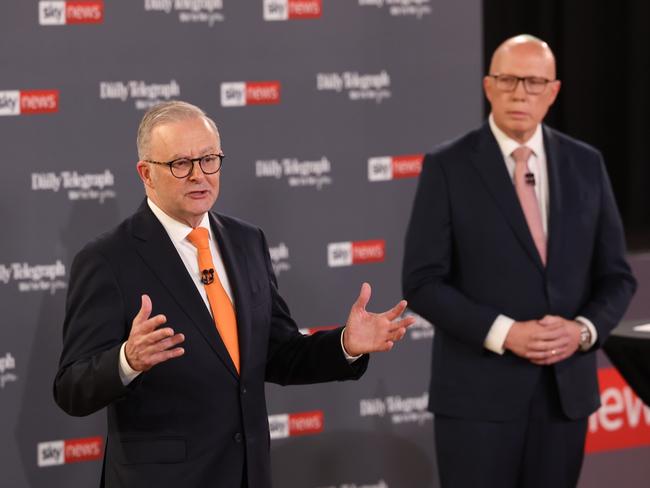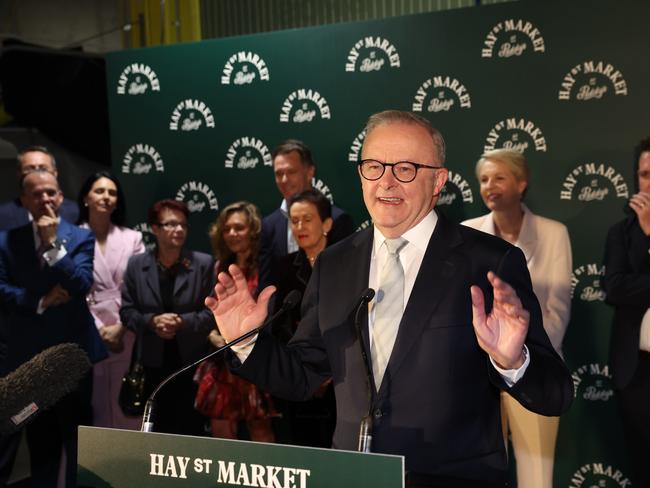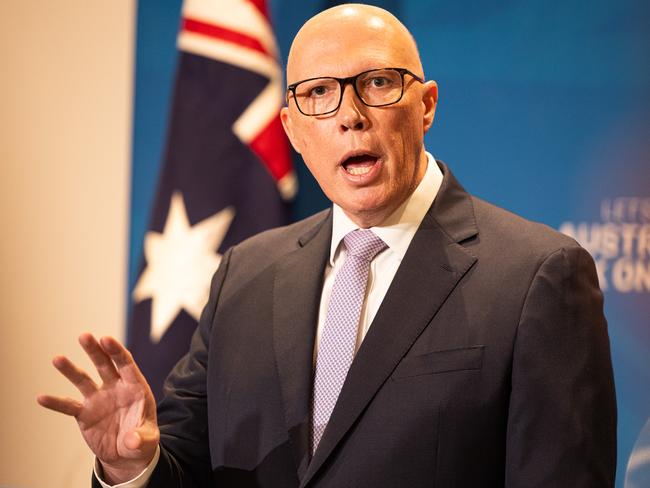Labor’s future is made for big business mates
Labor’s failure has damaged small businesses’ confidence and made it harder to grow, hire, and survive. With so much noise and so little action, isn’t it time we backed the leadership that’s actually prepared to deliver, asks Amanda Rose.

Opinion
Don't miss out on the headlines from Opinion. Followed categories will be added to My News.
Small businesses have been left behind. Under Labor, promises have turned into policy paralysis, and photo ops have replaced real action. They’ve talked a big game, but the results? Rising costs, red tape, and more pressure on the very people who keep our economy running.
We’ve heard it all before — and we’re paying the price for it now. Labor’s failure has damaged small businesses’ confidence and made it harder to grow, hire, and survive. So here’s the question: with so much noise and so little action, isn’t it time we backed the leadership that’s actually prepared to deliver?
The last three years have made one thing crystal clear: the federal Labor government has their priorities absolutely straight — shovelling cash to their union overlords and international investor pals like it’s an Olympic sport.
Meanwhile, small businesses? Yeah, not even an afterthought.
Not only have they completely abandoned any effort to support small business growth, but their actions demonstrate how they’ve gone out of their way to actively sabotage it. They introduced policies so detrimental that 29,000 businesses have shut their doors, and hundreds of thousands more are just out here working for free. Because who doesn’t love running a business and not paying themselves a wage?
That pitiful excuse for a tax cut? It’s as fake as their so-called commitment to local economies. Let’s call it what it is — an illusion. Because when it comes to actual contracts and real opportunities, they only flow one way: straight into the coffers of union-controlled outfits and corporate giants who already feast at the table — and help themselves to seconds.

Take the so-called Future Made in Australia Fund. Don’t be fooled. If you’re working-class or running a small business, this $22.7 billion slush pile — funded by your hard-earned tax dollars — isn’t for you.
It’s for the big players, the same corporate mates this federal Labor government has always looked after. They talk a big game about fairness, but when the cash gets handed out, it’s clear who they’re really working for — and it’s not you.
The real concern for small businesses in this election isn’t just the usual lack of support from Labor — it’s the surprising silence from the one side of politics that’s historically been their strongest ally. The Liberal Party, long recognised as the natural home for small business, has yet to put forward the kind of bold, forward-looking policies that this sector so urgently needs.

There’s no question that Peter Dutton cares deeply about Australia and its future. His leadership has been steady and principled, and he understands the value of small business — not just as an economic driver, but as the beating heart of local communities. He gets it. That’s why it’s so important his team matches that same care and commitment with policies that reflect the everyday reality for small business owners.
Yes, it’s fair to highlight the damage done under Labor — especially around cost-of-living pressures and rising business uncertainty. But finger-pointing alone won’t pay wages or keep the lights on. Small business owners are looking for a clear vision. They’re desperate for a road map that shows someone in Canberra actually understands what it’s like to be on the edge — juggling cash flow, payroll, and customer loyalty all at once.
There’s still time for the Coalition to rise to the moment. We need a policy agenda grounded in practical support: access to affordable finance, smarter tax incentives, and a serious strategy for local procurement.
Redirecting just $1 million in contracts to small, local businesses can create up to 14 jobs — nearly three times the impact of funding a multinational. It’s not just policy. It’s common sense — and it’s good economics.

If the Coalition wants to be seen again as the party for small business, now’s the time to lean in. That means listening more, especially to voices like Senator Gerard Rennick — who has consistently advocated for small business with clarity and conviction. Choosing not to preselect him felt like a missed opportunity. But it’s not too late to harness his insights and reconnect with those on the ground who feel unseen.
And there’s no harm in learning from others doing good work, either. Allegra Spender’s tax reform ideas are gaining traction with business owners — not just economists. Collaboration shouldn’t be seen as weakness; it’s a sign of leadership that puts outcomes above ego.
Peter Dutton remains the obvious choice to lead — his character, values, and love for this country are clear. But the opportunity now is for his team to show the same clarity and courage in their policies. Small businesses across Australia are watching, waiting, and hoping for someone to step forward with a plan that finally puts them first.




